From March 25 to 28, 2025, the Boao Forum for Asia (BFA) 2025 Annual Conference was held in Boao, Hainan, China. This year’s theme, ‘Asia in the Changing World: Towards a Shared Future’, focused on development as the central thread and addressed major global and regional challenges. Key topics included climate change, Asia’s energy transition, global supply chain stability, public health, artificial intelligence governance, and digital capacity building.
Ding Xuexiang, Member of the Standing Committee of the Communist Party of China Central Committee Political Bureau and Vice Premier of the State Council, delivered the keynote speech titled ‘Working Together to Meet Global Challenges And Build a Shared Asian Home’ at the opening ceremony. Other dignitaries who delivered remarks included Sonexay Siphandone, Prime Minister of Laos; Muhammad Yunus, Honorable Chief Adviser of the Caretaker Government of Bangladesh; and Abdulrahman Al-Fageeh, CEO and Executive Board Member of the SABIC. Ban Ki-moon, Chairman of the Boao Forum for Asia, delivered the welcome address. The conference was attended by Aren B. Palik, Vice President of the Federated States of Micronesia; Luvsannyam Gantumur, First Deputy Prime Minister and Minister of Economy and Development of Mongolia; Roman Sklyar, First Deputy Prime Minister of Kazakhstan; Alexei Overchuk, Deputy Prime Minister of the Russian Federation; Agus Harimurti Yudhoyono, Coordinating Minister for Infrastructure and Regional Development of Indonesia; and Paulo Rangel, Minister of State and Foreign Affairs of Portugal, along with more than 1,500 representatives from over 60 countries and regions, including government officials, business leaders, scholars from think tanks, and media representatives.
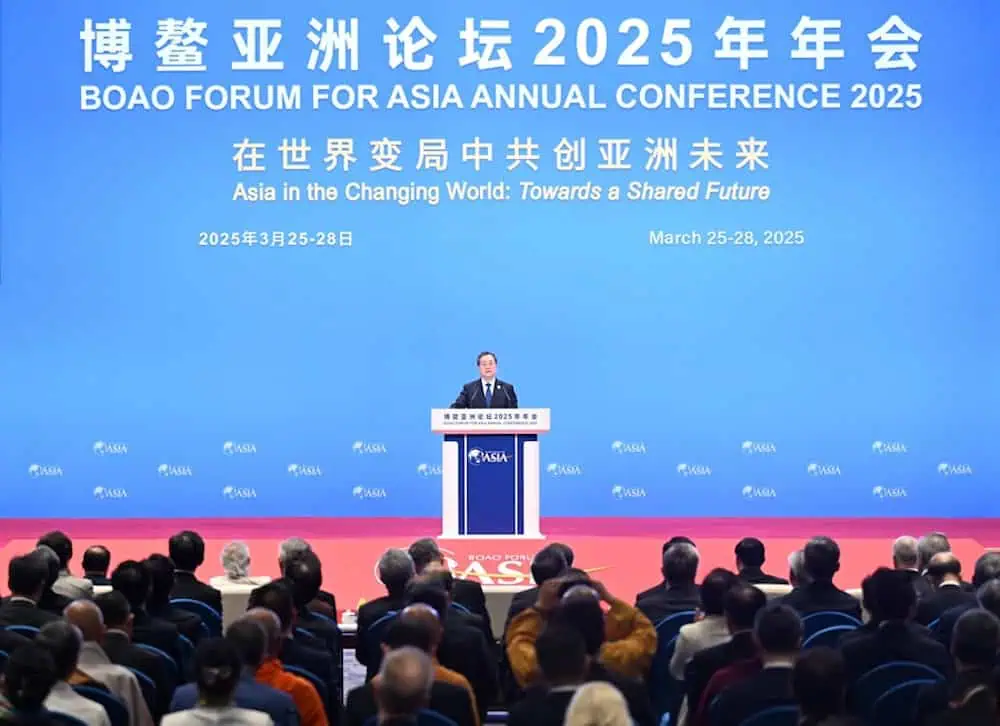
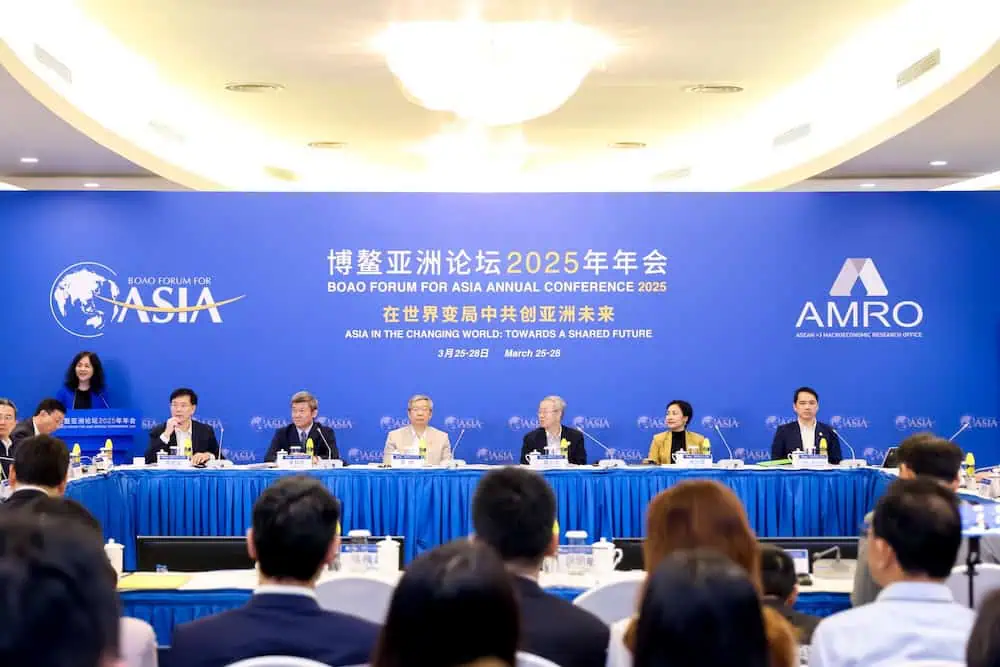
As a key sub-forum of this year’s conference, the “Financial Roundtable: Transition Finance for a Net-Zero Future” was co-hosted by the BFA Academy and the ASEAN+3 Macroeconomic Research Office (AMRO). The session centered on how Asia can accelerate transition finance and collectively advance toward net-zero emissions. Zhou Xiaochuan, Vice Chairman of the BFA Board and former Governor of the People’s Bank of China; Yi Gang, President of the China Society for Finance and Banking and former Governor of the People’s Bank of China; Li Kouqing, Director of the ASEAN+3 Macroeconomic Research Office (AMRO); Chea Serey, Governor of the National Bank of Cambodia; Soulysak Thamnuvong, Deputy Governor of the Bank of the Lao PDR; Zhang Tao, Chief Representative of the Bank for International Settlements (BIS) Office for Asia and the Pacific and former Deputy Managing Director of the International Monetary Fund (IMF); Hu Xiaolian, former Vice Governor of the People’s Bank of China; Marshall Mills, Senior Resident Representative of the IMF in China; Jin Zhongxia, Director General of the Treasury and Portfolio Management Department of the New Development Bank; Yoo Jae-hoon, Chairman of the Korea Deposit Insurance Corporation; Bonnie Y. Chan, Chief Executive Officer of the Hong Kong Exchanges and Clearing Limited (HKEX); Bryan Pascoe, Chief Executive Officer of the International Capital Market Association; Jaime Anchústegui Melgarejo, Deputy CEO of Generali Group; Liu Jin, Executive Vice President of the Bank of China; Xu Xinwei, Vice President of the China Export & Credit Insurance Corporation; Yuan Duoran, Deputy General Manager of the Shanghai Stock Exchange; Lin Jianhai, former Secretary of the IMF and the Board of Governors; Cao Li, Vice President of the Boao Forum for Asia Academy; Pan Qingzhong, Executive Dean of Schwarzman College, Tsinghua University; Fu Chenggang, Chairman of the China Innovation Finance Institute; Wu Weijun, Vice Chairman of Deloitte China; Wang Yao, Dean of the International Institute of Green Finance, Central University of Finance and Economics; Kawamura Tadaaki, Minister of Economic Affairs and Chief Financial Attaché of the Embassy of Japan in China; Abdurohman, Deputy Director of AMRO; and Hazem Ben-Gacem (Xia Benjia), Founder and CEO of BlueFive Capital, attended the session and delivered speeches.
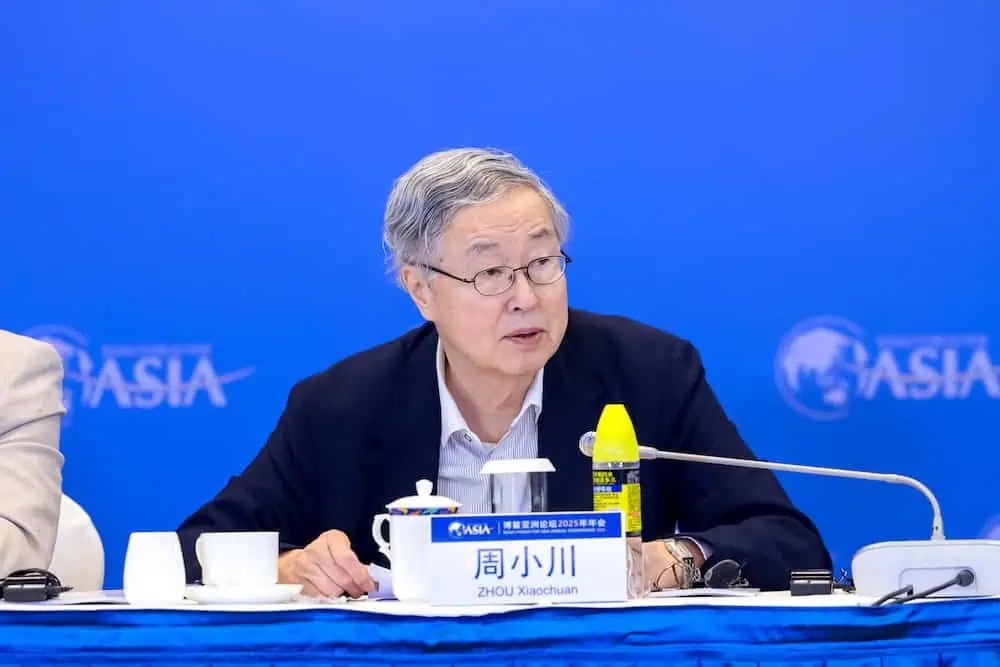
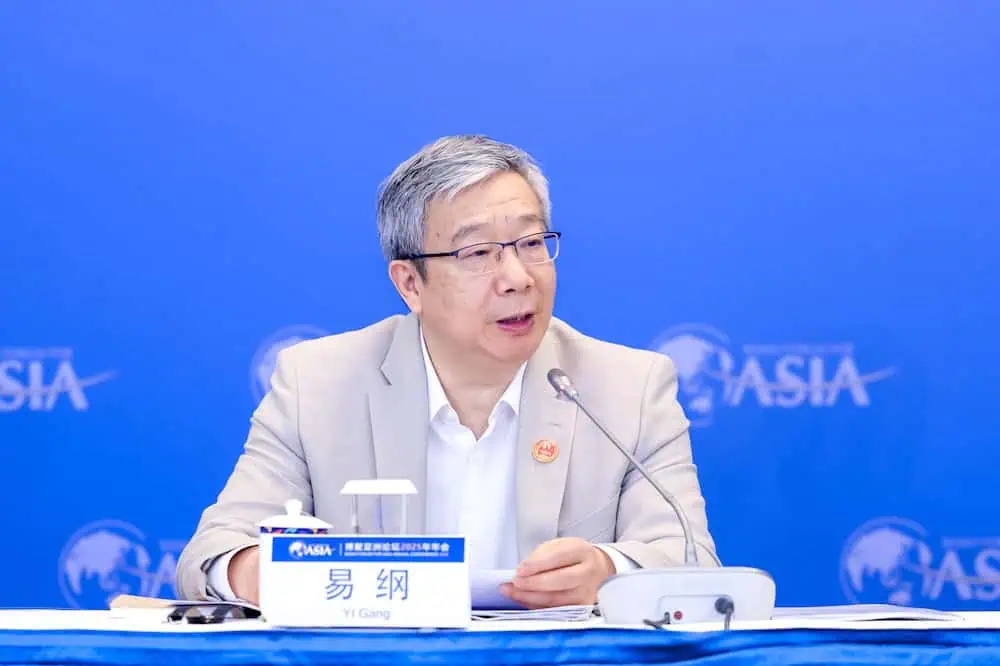
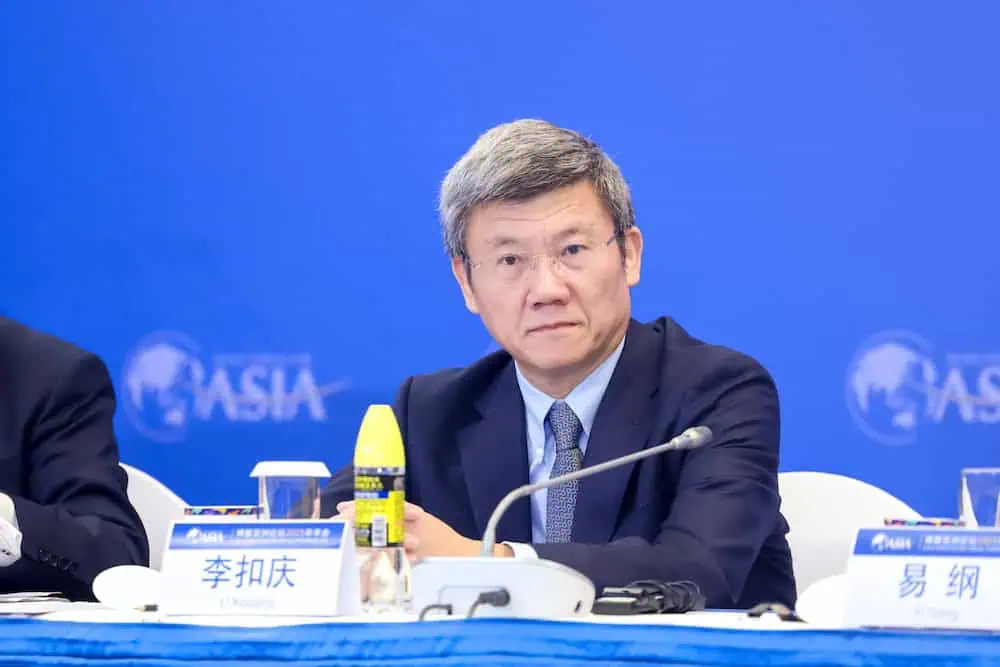
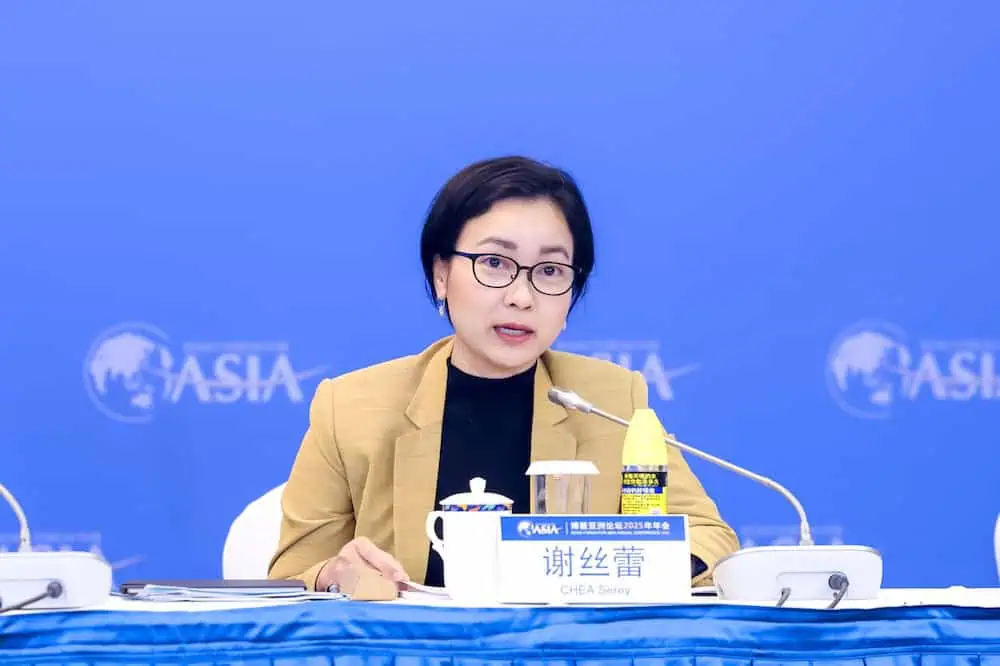

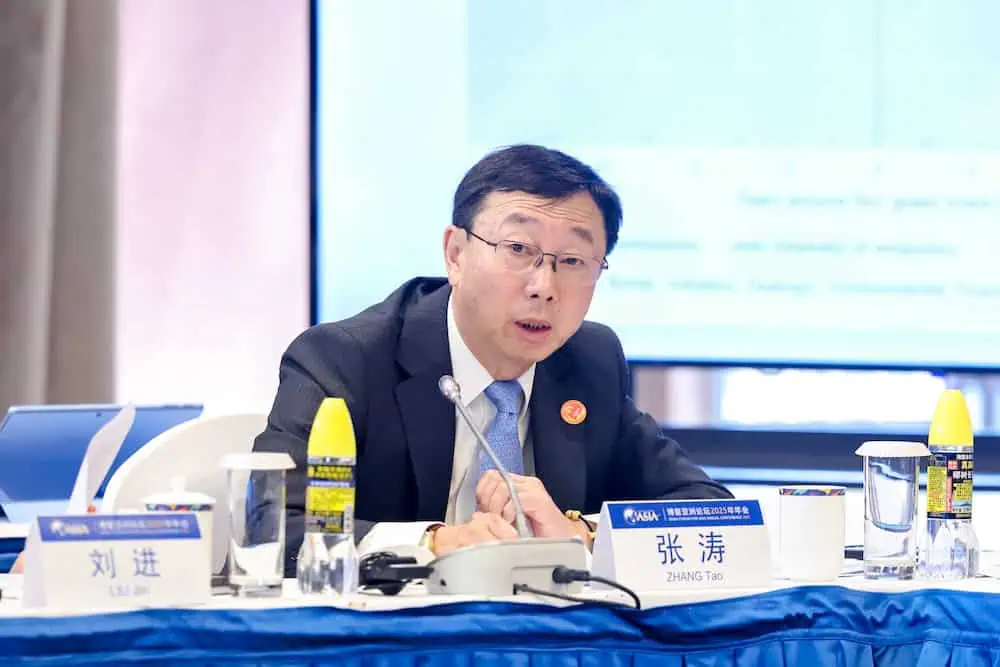
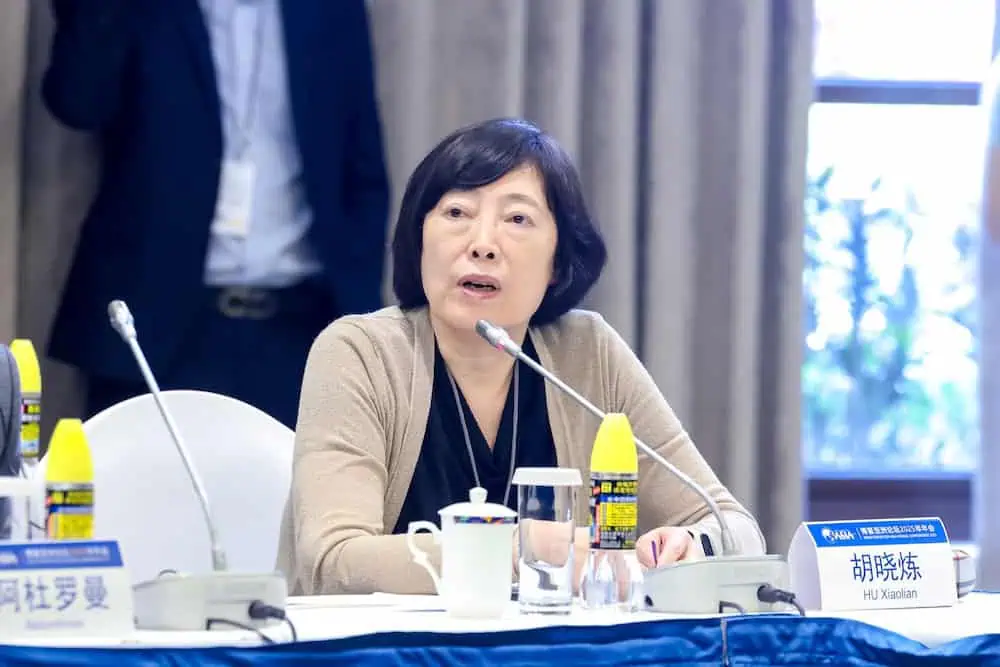
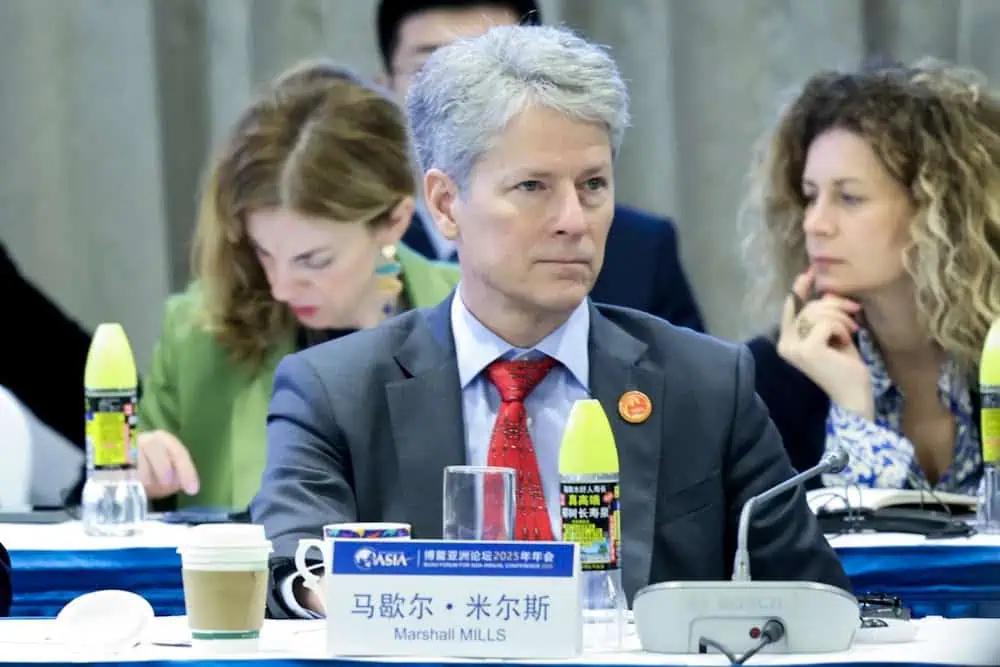
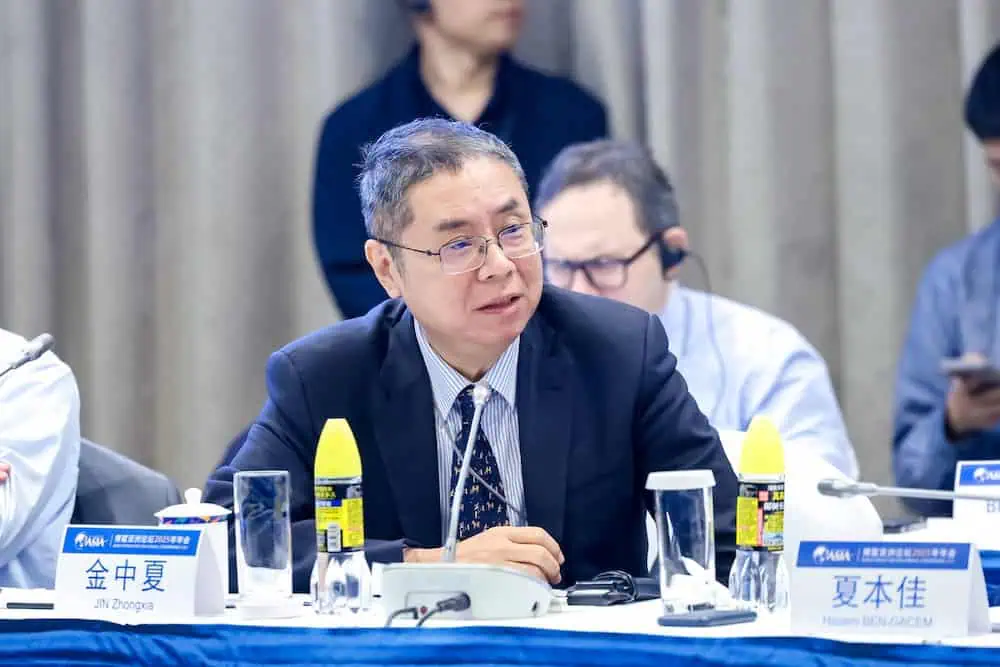
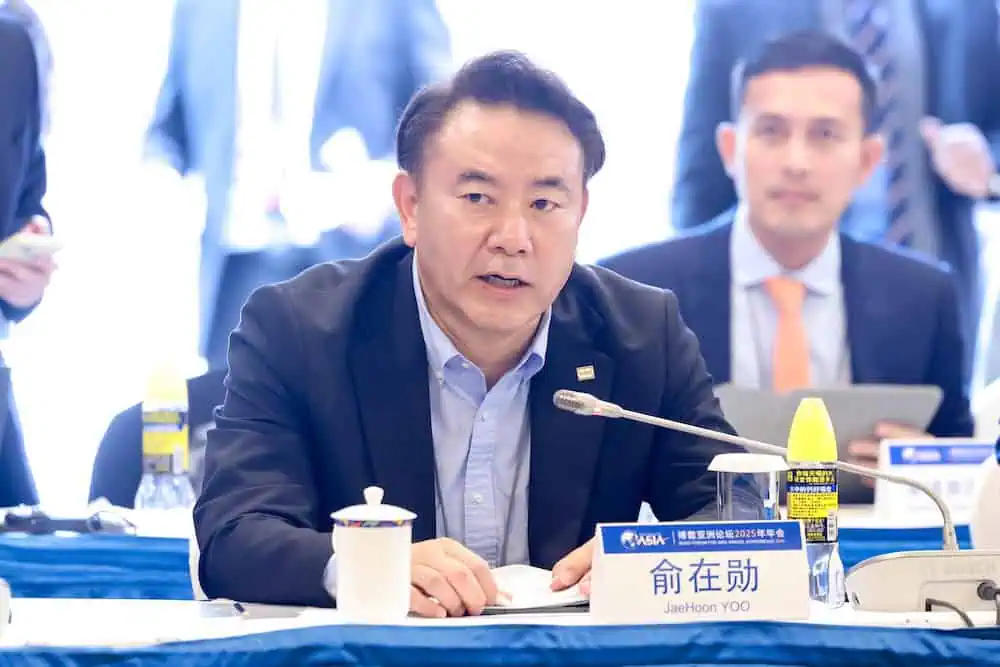
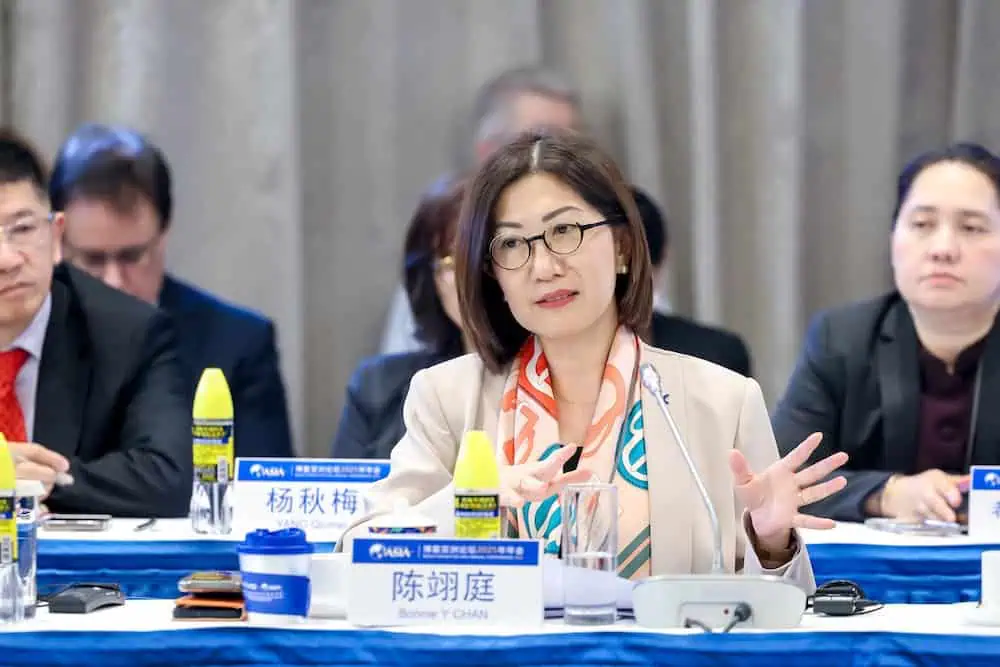
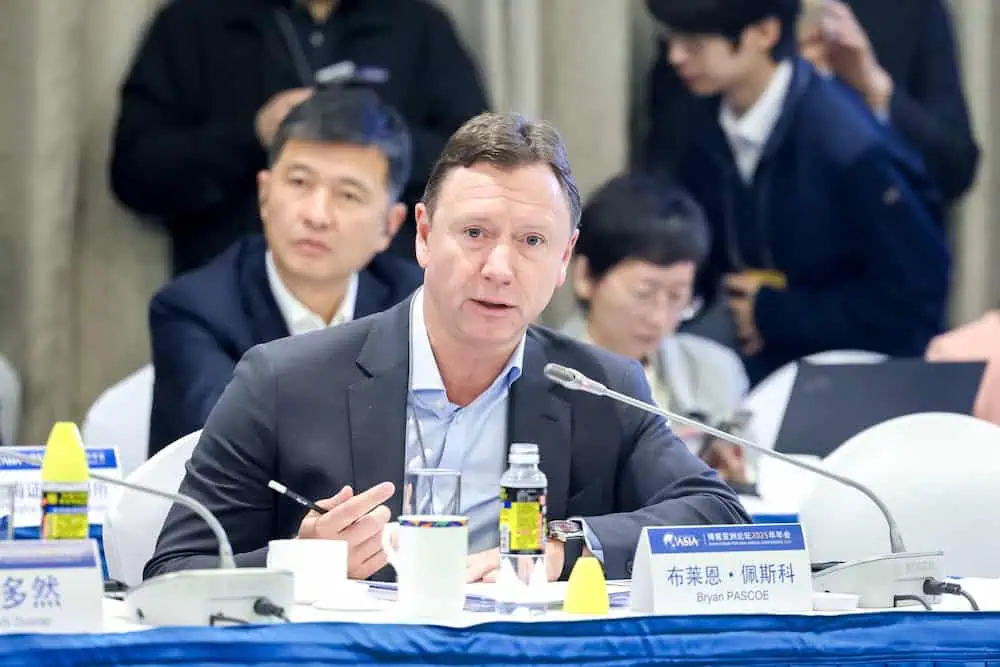
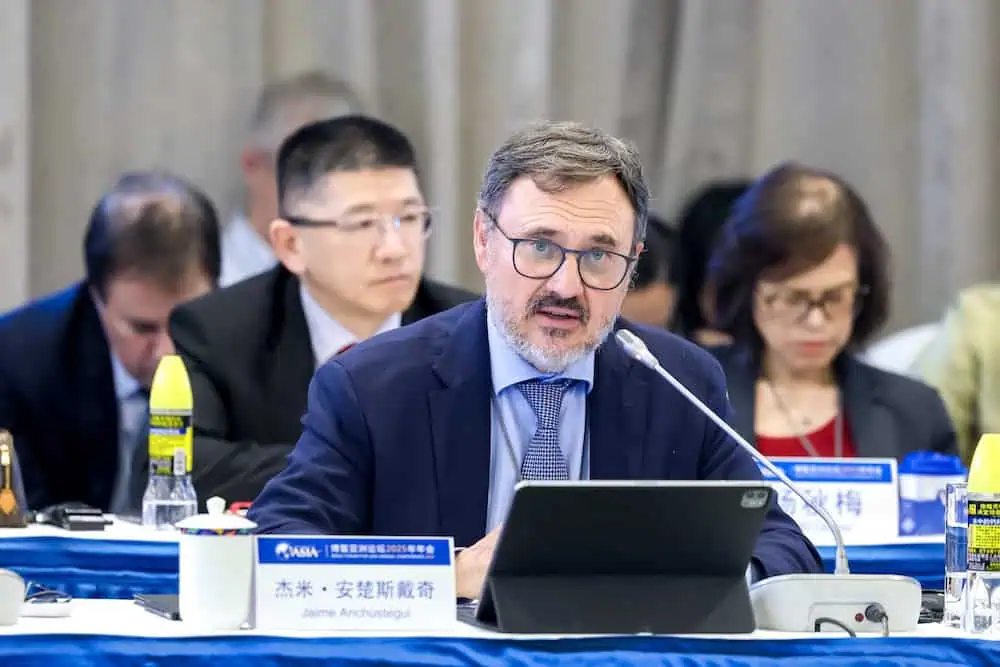
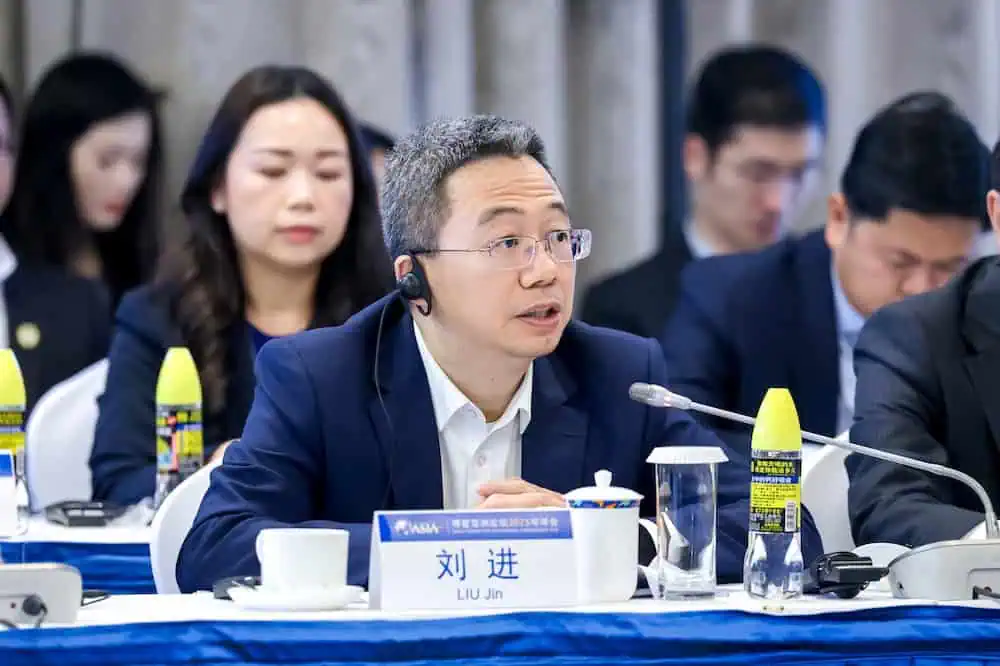
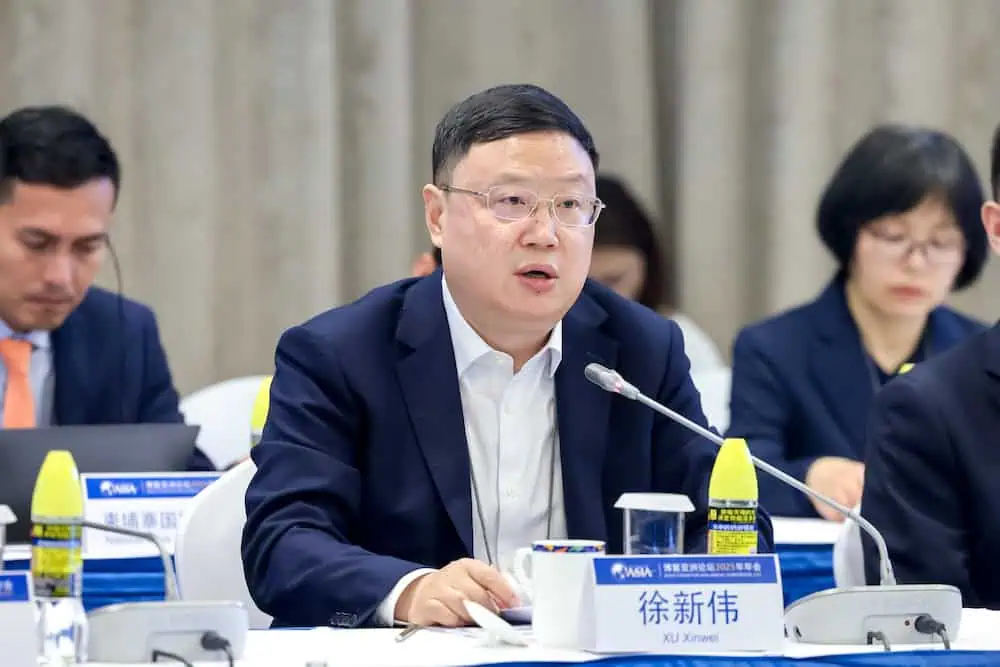
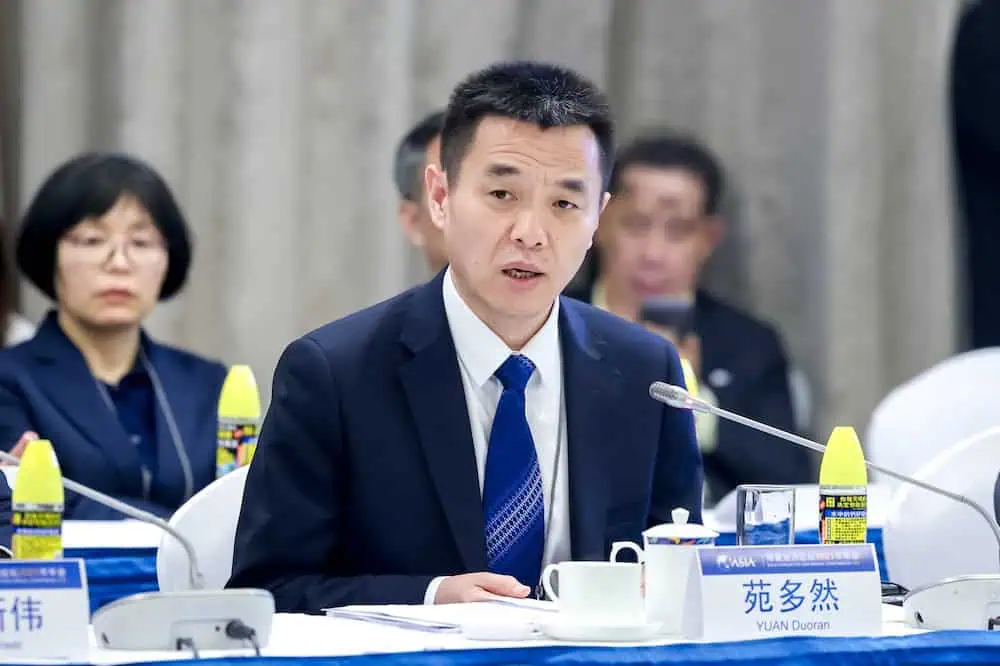
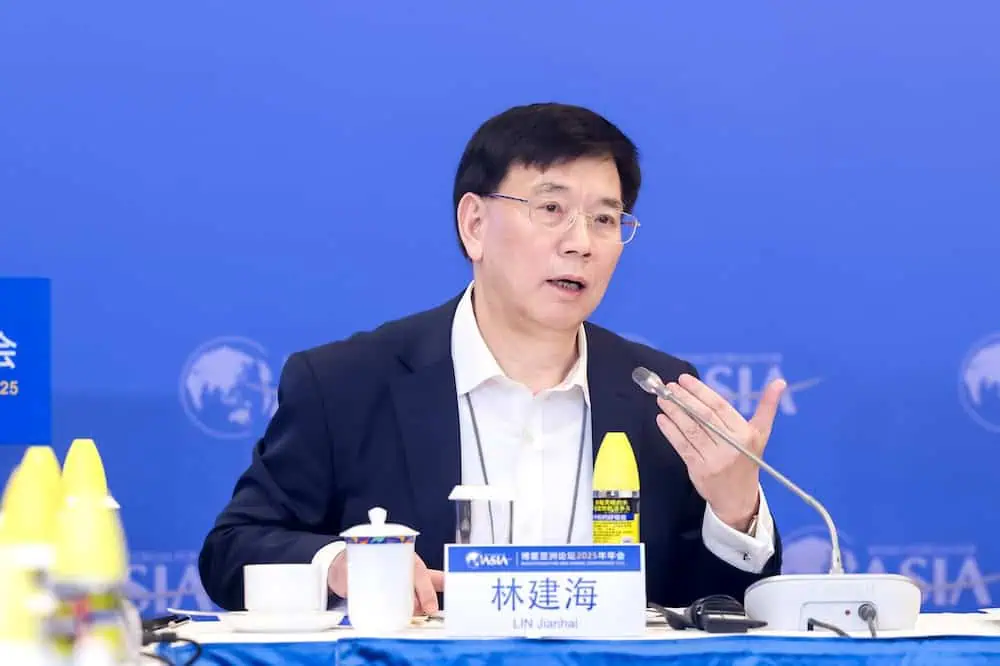
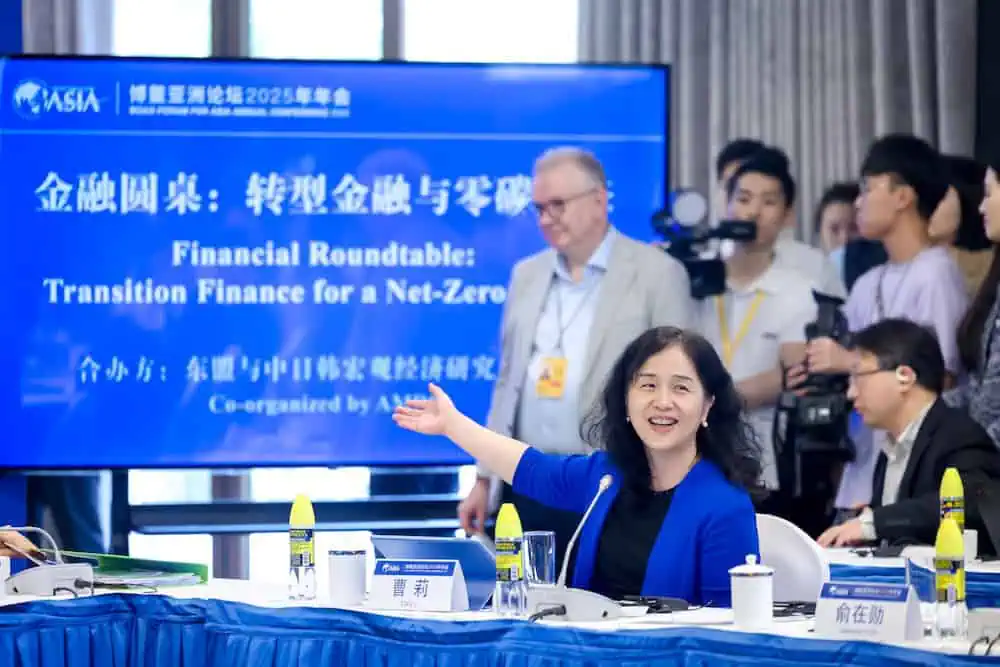
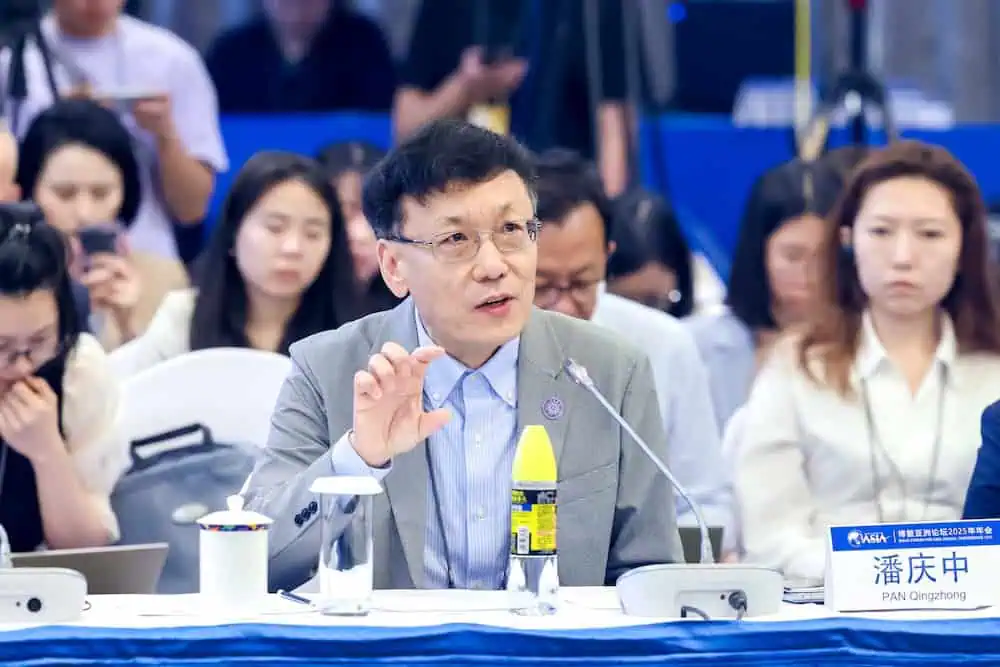
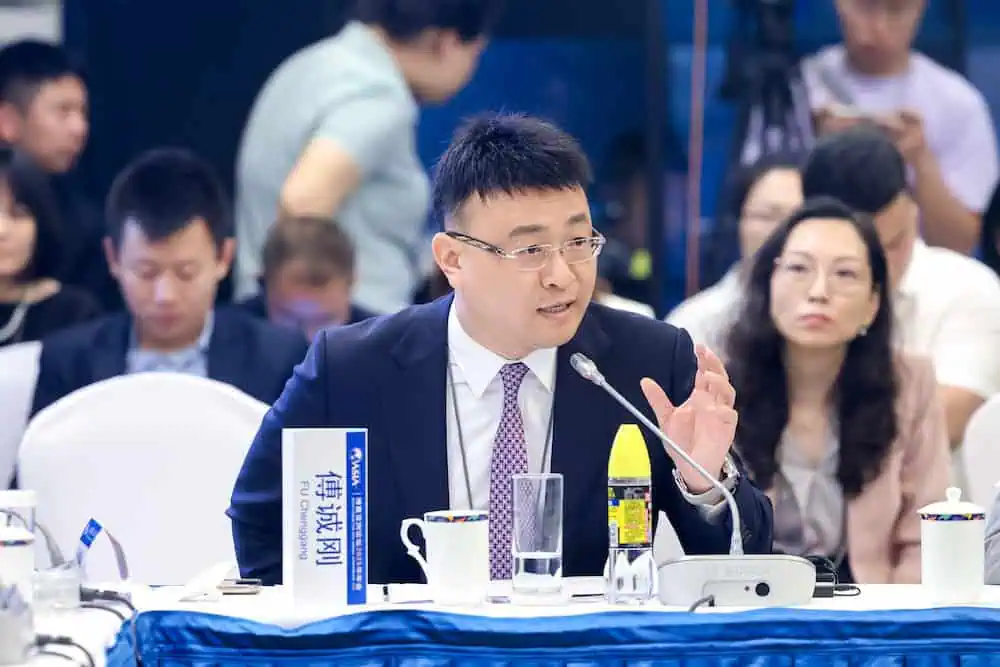
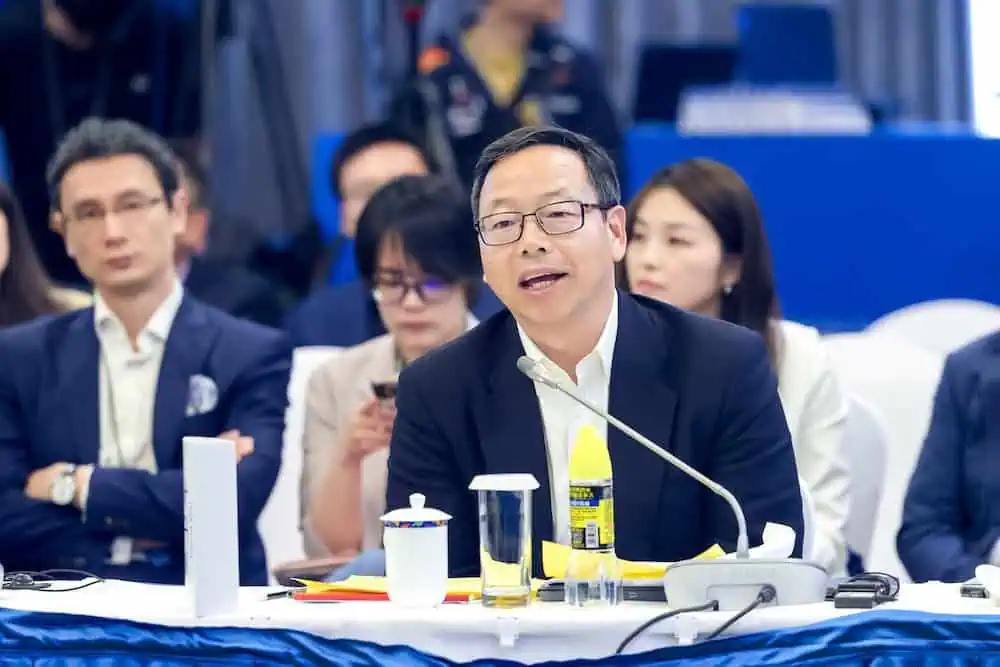
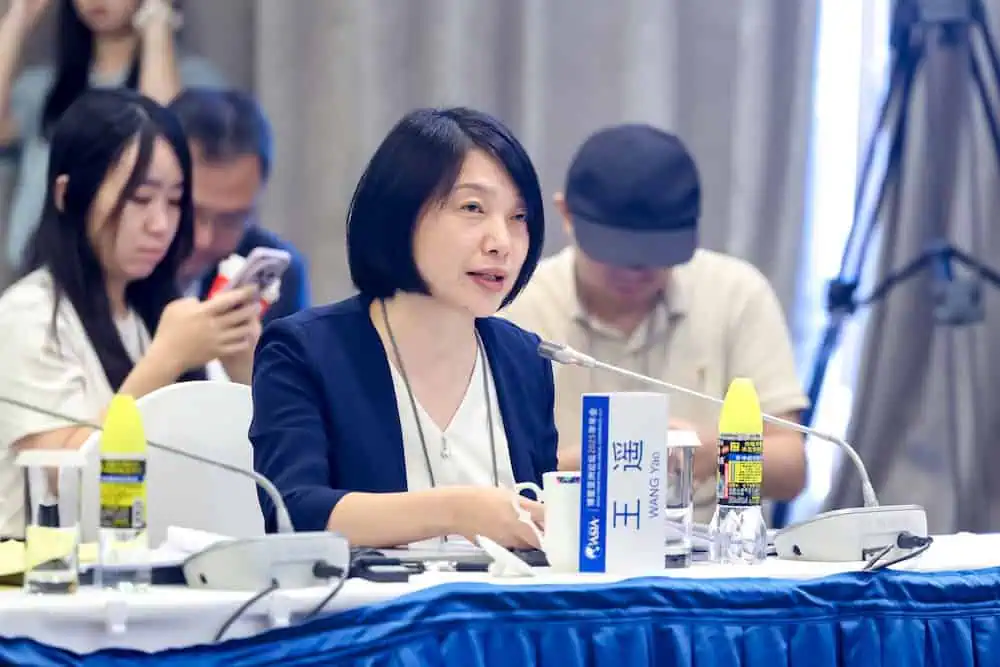
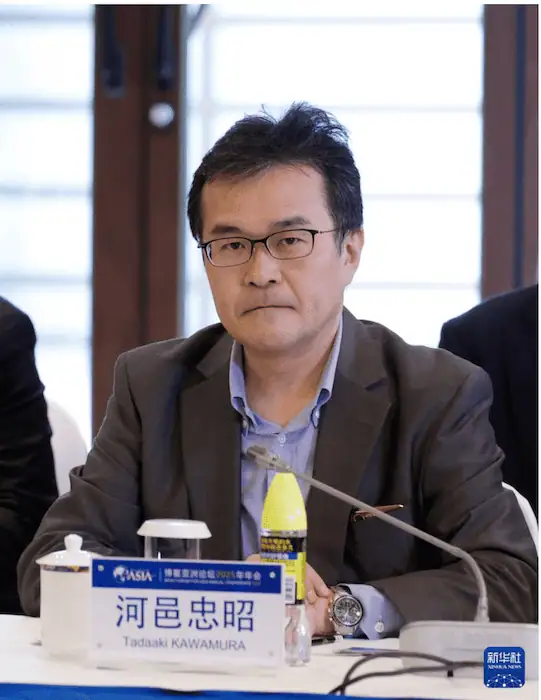
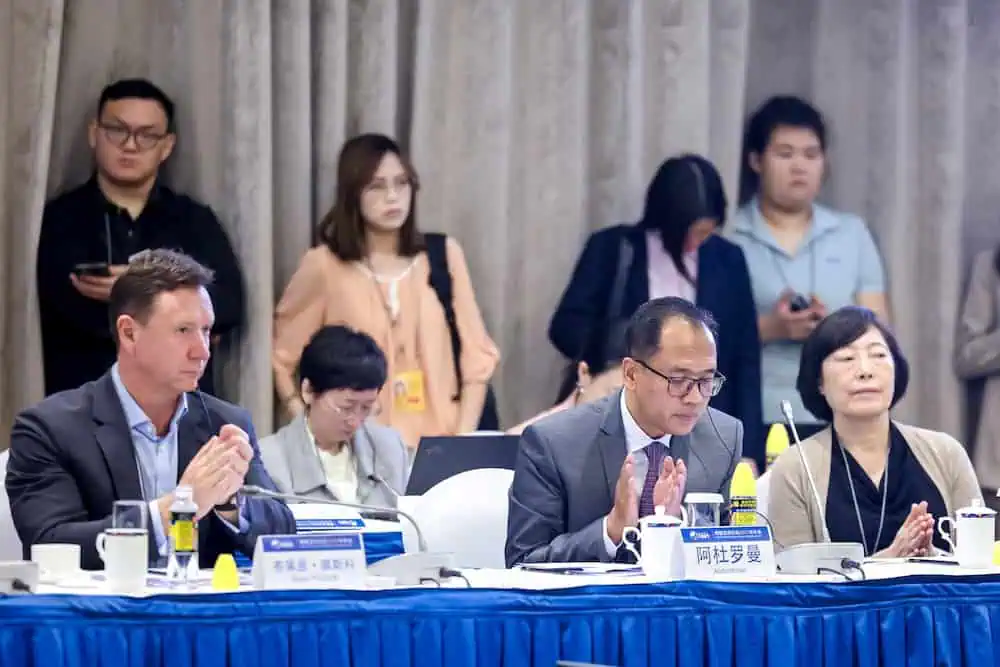
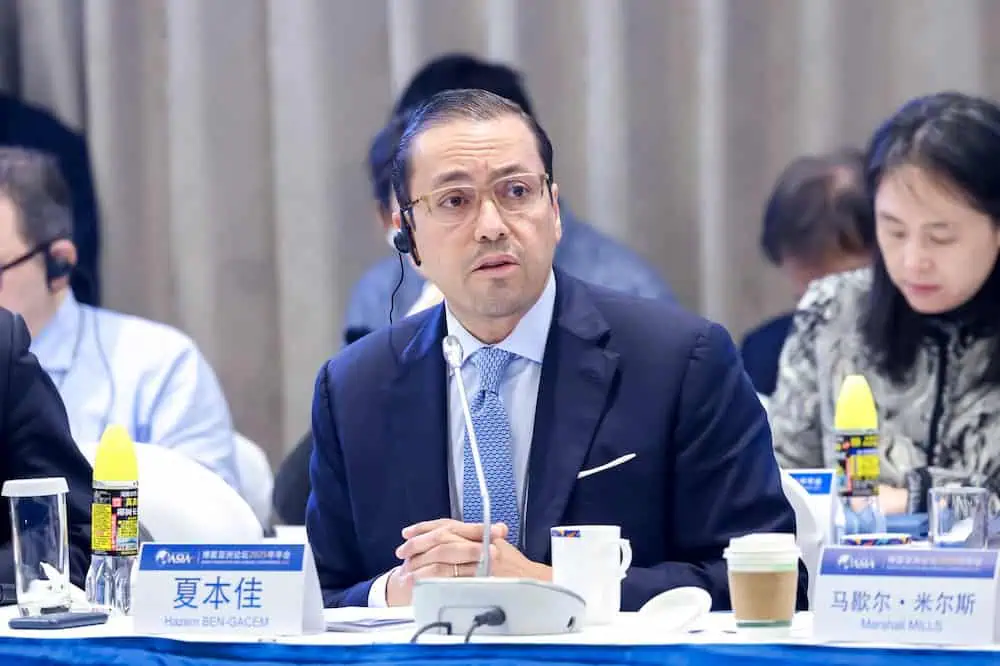
Chairman Fu Chenggang shared his insights from both policy and market perspectives as follows:
First, Synergy Between Onshore and Offshore Financial Regulation and Development. Drawing on global research and practical observations from the institute, it was noted that international offshore financial centers in regions such as Europe, MENA (Middle East and North Africa), and Central Asia are playing a growing role in promoting sustainable finance and transition finance. Onshore regulators, typically central banks and securities commissions, serve as advocates and regulators, while offshore centers focus more on being participants and practitioners, supporting investment attraction and market development under principles such as common law governance, national treatment neutrality, and onshore-offshore connectivity. Offshore centers will increasingly contribute to the financing and investment side of transition finance, while regulatory synergy will be crucial for market development.
Second, Sovereign Investors’ Financial Market Pathways in Transition Finance. Global sovereign investors, including sovereign wealth funds, have increasingly adopted ESG disclosure as a mainstream practice. While direct investments in transition sectors are rising, they still account for a small proportion. However, this does not indicate inactivity. Many sovereign funds are major shareholders of leading global and domestic financial institutions, either through mandates or direct investments, thereby indirectly supporting transition finance. Comprehensive assessment of sovereign investment in sustainability should include the analysis of financial intermediaries such as banks, exchanges, and asset managers.
Third, RMB-Denominated Transition Finance Products in the Middle East and Asia. There is growing demand for non-USD denominated sustainable financial products in Islamic countries across MENA, Central Asia, and Southeast Asia, including stocks, bonds, ETFs, and derivatives. Given the push by oil-exporting countries to develop commodity finance, there is significant long-term potential for RMB-denominated financial instruments, creating new opportunities for China in the transition finance sector.
Fourth, Sustainability and Risk Management in the Virtual Asset Market. Gulf nations in the Middle East have adopted light-touch regulation to promote the digital asset space, including sustainability-themed digital financial products. While investment and fundraising are active in this space, so too are risks. Regulators, platforms, and market participants must improve investment education, compliance standards, and lawful trading practices, to safeguard against illicit activities disguised as transition finance.
During the forum, the China Innovation Finance Institute held extensive bilateral meetings with over 20 international organizations, government departments, financial institutions, industry groups, chambers of commerce, think tanks, and universities, exploring global cooperation opportunities in areas such as financial market liberalization in Chengdu, cross-border investment and financing, Finance Week, westward industrial expansion, and financial talent development.

